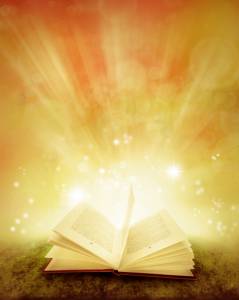 Amid an announcement of cost-cutting measures, the BBC has relegated religious coverage to a department shared with three other topics; they have also axed the position of head of religious programming. Commentators and leading religious figures see a dangerous policy change in what appears to be a shift of focus leading away from religion as a topic, with a distinct mission to create a new position incorporating history, science and business.
Amid an announcement of cost-cutting measures, the BBC has relegated religious coverage to a department shared with three other topics; they have also axed the position of head of religious programming. Commentators and leading religious figures see a dangerous policy change in what appears to be a shift of focus leading away from religion as a topic, with a distinct mission to create a new position incorporating history, science and business.
The two Nigerian candidates of differing religions who have faced off previously now revisit their showdown in the race for presidency. From the north, Muslim leader General Muhammadu Buhari returns to challenge presidential candidate Goodluck Jonathan, a Christian from the south of the country. The election was originally scheduled for February 14th, but was postponed to March 28th over instability due to security concerns related to Boko Haram.
Religious Coverage Gets The “Fag End” of Priorities at BBC?
Leaders and representatives from faiths including the Church of England, Islam and Judaism, along with renowned religious scholars, jointly issued a letter in the Telegraph decrying the change, insisting “religion is not history.” The religious leaders note that the change “could not come at a worse time,” as world events from the terrorist attacks in Paris to fighting disease in Africa have a distinct religious component to them.
The faith leaders noted in their letter, “religious literacy is essential to the diversity we treasure in Britain—and a tonic to the extremism and intolerance that threaten it.” In a statement issued after the announcement, the BBC maintains that the network’s resolve to continue to maintain religion and ethics programming is “unequivocal.”
Lumping Science Together With Faith
Aaqil Ahmed, the first Muslim to hold the post of head of religious programming, still remains with the BBC but is no longer responsible for new religious programming. In the new lineup of departments at the venerable broadcasting network, religion has been lumped into an unlikely quartet with science, history and business. Representatives of the network have said that Mr. Ahmed is welcome to apply for a position as head of the newly created division.
Previously, religious programming was in its own department with control over original programming and a great say in the tone and nature of religious coverage at the BBC. Religious programming must now battle for time and budget resources with other compelling topics. Many see the shift of relegating religious coverage to the sidelines as indicative of the BBC’s priorities and policies.
Religion at the Forefront of Issues in Nigeria’s Election
Traditionally known for strong religious sentiment, the populous Nigeria is sharply divided in many areas between Muslim and Christian believers. Archbishop Benjamin Kwashi, Anglican leader in the city of Jos, notes that “religion by its very nature and content appeals not so much to reason. It’s a heart matter and carries with it huge emotions.” People in the country seem to want a strong leader who can lead the country despite its religious differences and who will encourage people to live peacefully side-by-side, helping them to back away from the battles of recent years that contained religious undertones.
The Archbishop has been vital in helping to diffuse religious tensions in the divided city. He notes from experience that “money and religion in politics, they go together.” The country has been riven by deadly clashes in the past decade as a result of political and social disputes, including access to land, power and jobs.
In the north, the rioting after Buhari lost the 2011 presidential election claimed some 800 lives. Religion and political differences simmer together in the African nation as it works to maintain a democracy that is representative of the people and responsive to their needs.
Our Connections Are Greater Than Our Differences
Many people point to the African election as a prime example of the unavoidable connections between religion and politics, and also as another indicator of the intimate links between current world events and faith. Observers in the country and residents alike hope that as people everywhere—especially in Nigeria—become more educated and more aware of their connections as citizens of the country and humans on the planet, that people will choose more enlightened leaders, regardless of religious preference.


